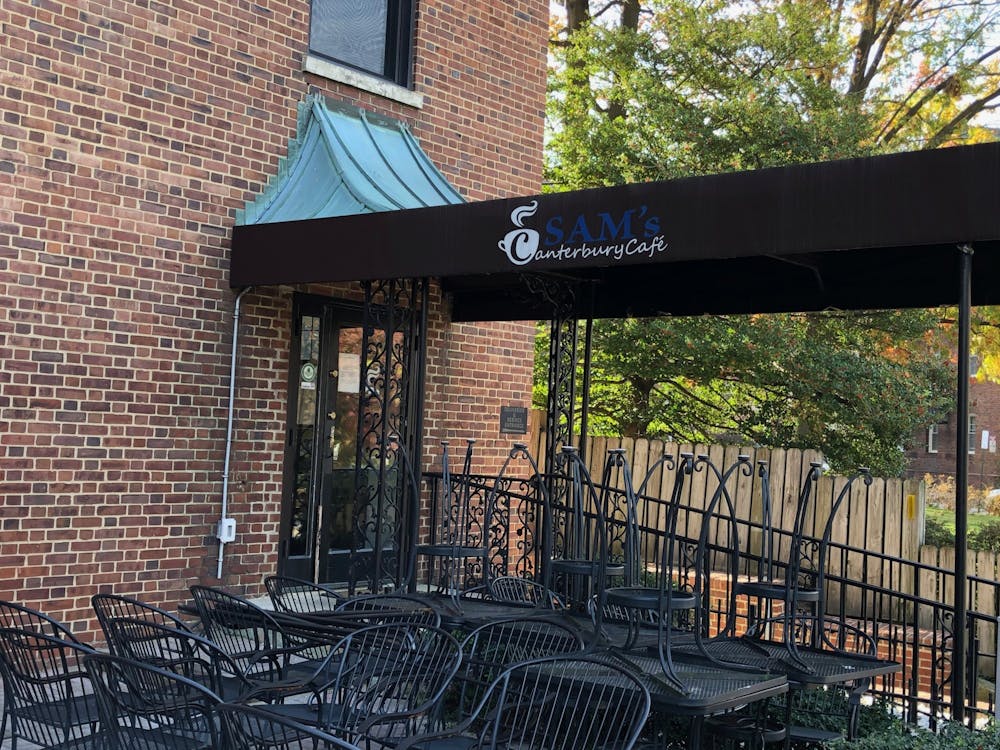After over two years in business, Sam’s Canterbury Cafe permanently closed its doors on Sunday, Nov. 3. The cafe, located on W. 39th Street and Canterbury Road, provided employment to adults on the autism spectrum.
Jennifer and Michael Myers opened the cafe in February 2017 so that their son, Sam, could find meaningful employment as an adult with an autism spectrum disorder (ASD). They decided to open a cafe after discovering that Sam enjoyed working in the hospitality industry through a local service agency which supports adults with an ASD.
After a rough first year where a family friend served as the store’s general manager, they brought on industry veteran Lisa Auld to serve as the cafe’s operating owner and to improve morale.
Auld said that the cafe’s closure was indicative of the difficulty of operating small businesses in Baltimore.
“Unfortunately that’s the story for a lot of small businesses all over Baltimore, whether it’s a cafe or a clothes shop or someone’s favorite craft or anything, it’s tough because you need to pay good people, and you need to get the products, but you also need to make the numbers,” Auld said. “It was definitely a bittersweet decision.”
Auld explained that when she started working at the cafe, she had to implement sweeping changes to bring it up to industry standards.
“When I first walked in here... I realized it wasn’t a good place for anyone to come. It wasn’t clean. The menu was all over the place. It really needed a helping hand,” Auld said. “I shut it down. I completely renovated it. I hired very capable and exceptional staff.”
Senior Jenna Movsowitz, who said she lived near the cafe and enjoyed going there while it was open, told The News-Letter that she felt that the renovations made an impact.
“I just loved going and meeting all the really friendly staff and feeling like I was getting brunch but also helping give someone a work opportunity who might not otherwise have one,” Movsowitz said.
Movsowitz added that the cafe opened up new and unique career opportunites for people on the autism spectrum.
“This was a really good opportunity to have people who are not usually visible in spaces like that to have not only an opportunity to work, but also to be visible,” she said.
Auld stressed that she thought of Sam Myers and Abby Alexis, another employee with an ASD, as integral members of the cafe’s staff.
There was a strong positive feedback dynamic, Auld explained, between Sam Myers and Alexis and the other employees.
“Sam and Abby each worked up to 30 hours a week, and we were really able to focus on teaching them service skills and becoming independent,“ she said.
The restaurant’s pastry chef, Lisa Doyle, saw the cafe’s mission of providing meaningful employment for those with an ASD as part of what made it special.
“It was definitely a learning experience for both them and myself,“ Doyle said. “I loved working with Sam and Abby.”
The cafe grew to have a loyal following among Hopkins students. Auld said that about three quarters of the cafe’s customers were regulars and that about one half of those regulars were students.
“We would have students, whether it was a Tuesday or a Sunday brunch, and they would hang out, get breakfast and lunch, sit here all day, study. We even put a counter up top that has six charging stations, so if they wanted more seclusion to study and focus, they could,” Auld said. “You definitely saw a lot of regular students just hanging out all day.”
One of those regulars, senior Francesca Kroll, agreed in an email to The News-Letter that the cafe’s mission was meaningful and added that its closure was disappointing.
“I have a sibling with special needs, so it meant a lot to me that there was a business working to create an environment of equality,” Kroll wrote. “I was saddened by the fact that this meaningful mission was coming to an end. It was a place I liked to go to feel like I was off campus, and to be surrounded by welcoming people.”
Kroll pointed out that the cafe was not very well integrated into many students’ mental map of the Hopkins community.
She emphasized that students were often not aware of the cafe’s existence, which may have contributed to its untimely demise.
“A lot of the time I asked people if they knew what/where it was and they’d never heard of it,” Kroll wrote. “It was a great place so I think students would have gone there a lot if they knew about it.”
Auld, however, said that one of the most serious issues for the cafe was a lack of nearby parking.
“I’d say it was a good run, but it just wasn’t sustainable unfortunately. I’d say primarily due to location, it would never reach its potential,” Auld said. “Even with the increased sales... it was never going to get to where it needed to get.”





